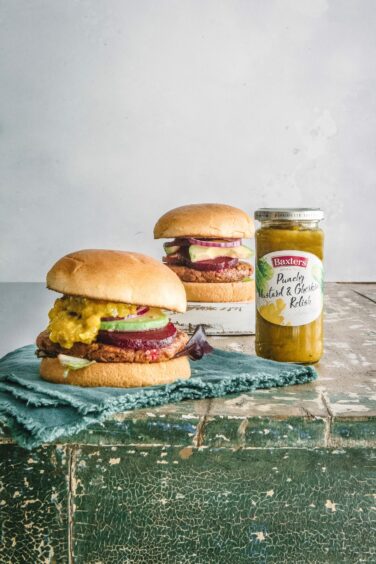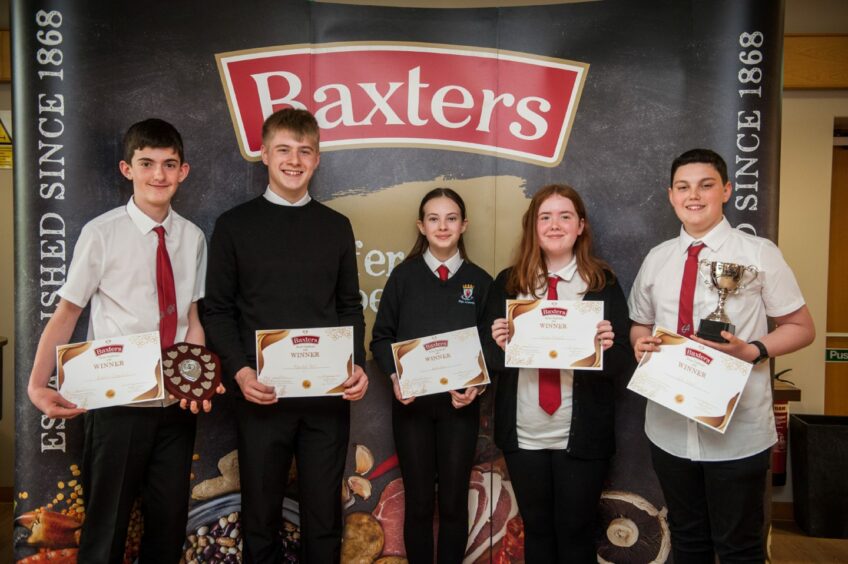It’s been nothing less than a whirlwind of challenges for the food and drink sector over the past few years.
Many areas of business and society are, undoubtedly, still rebuilding from the pandemic. What that period did crystalise was the fundamentally vital role of food manufacturers, their supply chain and retail partners in ensuring food security – filling supermarket shelves, kitchen cupboards and peoples’ plates.
Sector ‘rich with artisan producers’
Food and drink manufacturing is Scotland’s largest manufacturing sector, employing 48,000 people and adding £3.4 billion in value to the economy every year. The sector is rich with artisan producers and well-established brands; nearly 1,300 businesses producing a combined annual turnover of £10.3bn (Food and Drink Federation Scotland).
Many of then, like ours, have their roots in the north-east and Highlands.
Despite this success, we can’t overlook the fact recent market conditions have been extremely challenging. No sector has been untouched by the major external forces of high inflation, energy costs, the war in Ukraine, Brexit and the cost-of-living crisis.
At an industry level we’ve also experienced labour shortages and regulatory pressures.
For example, the now delayed Deposit Return Scheme and forthcoming “extended producer responsibility” regulations. Many manufacturers have had to absorb costs and constrain pricing to avoid passing rises on to consumers. And yet the sector has remained resilient, vibrant and dynamic. It is an industry that continues to inspire across the globe.
Innovation and product development are crucial drivers of this continued success and areas to which we, as a business, are hugely committed. But the driving force behind our commitment to continuous improvement is not a recent idea or new development.
It is, in fact, something that has remained unchanged for more than 150 years.
Baxters’ ethos to “be different, be better” was established by our founder, my great grandfather, George Baxter, and has truly stood the test of time, underpinning our culture and strategic vision.
It is always at the forefront of our minds, whether we are reviewing product ranges, addressing our sustainability impacts or managing skills and resourcing – how can we do things differently and how can we do them better?
New and old product innovations
Pickling and preserving are in our DNA. It was pickles and jams that put Baxters on the map back in 1868. We recently launched a new pickle range, which was developed through understanding the needs of modern consumers and tapping into the growing trend for creating restaurant-style meals at home.
It’s not just about introducing new products but looking at how we can improve existing ones. No business can rest on its laurels, so last year we took 11 of our core soups and worked with our development chef to make them even closer to homemade. Every recipe was personally signed off by myself.
We all recognise the intrinsic value of Scottish provenance in our products – it has become a byword for exceptional quality and taste.
That’s why we work hard to use as many local suppliers as possible, from beetroot from Browns Farms in Dipple, in Moray, carrots from Maxwells and potatoes from Benzies – both in Turriff – to smoked haddock from Eat Mair Fish in Buckie, which gives our Cullen Skink that unmistakeable flavour.
Improving sustainability impacts
Local sourcing is also part of the solution to improving sustainability. Globally, the food and drink sector accounts for one-third of the world’s greenhouse gas emissions (UN Food and Agriculture Organisation) – a sobering figure.
At Fochabers, we’ve invested in reducing our environmental impact – which will inform processes at our other sites. We have made the site more energy efficient by introducing new lighting, more efficient boilers and improved waste streams.
We’ve collaborated on more complex issues, like our two-year partnership with West of Scotland University to address challenges in effectively managing effluent discharge at the site, allowing us to reshape our wastewater treatment processes.
Inspiring fresh talent
The sustainability of our skills pool and talent pipeline is also crucial. We employ more than 350 people at our flagship factory in Fochabers, which is more than half our UK workforce.
Food manufacturing is an exciting sector in which I am proud to work.
But it still suffers from misperceptions and little awareness about the breadth of roles and depth of development opportunities. That’s why we work closely with Developing the Young Workforce Moray, Robert Gordon University and Entrepreneurial Scotland to support our approach to talent acquisition.
Nearly 1,000 pupils in Moray took part in this year’s soup challenge to create a new recipe backed by a costed business and marketing plan. It gave then all a flavour for some of the roles and career opportunities within the food manufacturing industry.
Innovation and improvement are fundamental to ensuring the ongoing resilience and prosperity of the sector. They are key to tackling complex challenges and exploiting global opportunities.
But at their heart lie two simple questions that every business should ask themselves – how can we be different? And how can we be better?
Audrey Baxter is executive chairwoman of Baxters Food Group.




